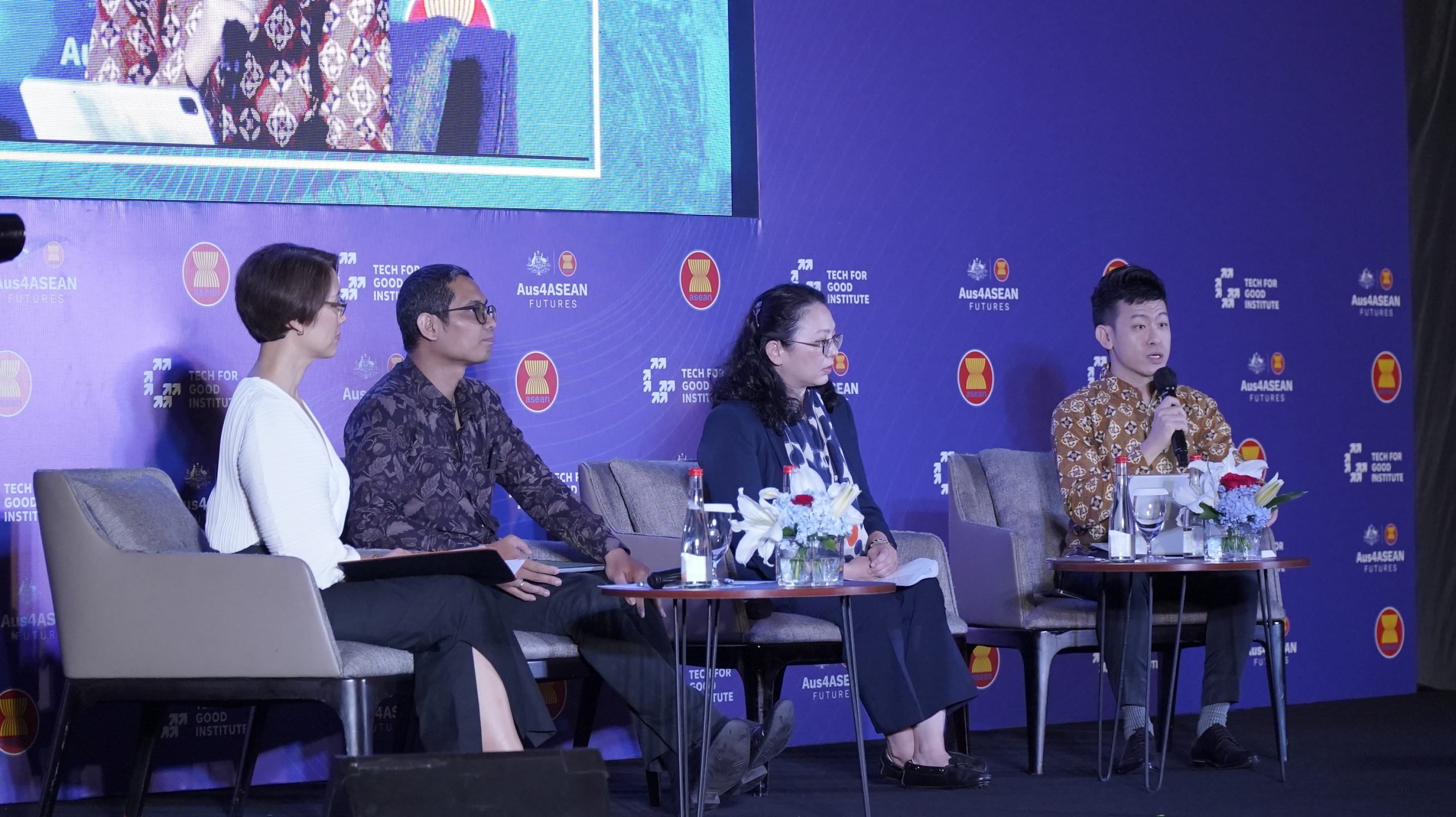




Imagine this. You are a commuter in Bangkok, or a pedestrian in Indonesia. You are going about your daily life—shopping, working, or enjoying some leisure time. Suddenly, you discover that somebody has been tailing you and tracking your every move. The perpetrator has been finding out details about your life, and sharing it with parties you do not know.
what you can do. You report this to the nearest police station. They investigate; the perpetrator is dealt with by the law. The world is now a safer place.
Yet, imagine if this happened entirely online, by actors completely unbeknownst to you and about data you had no idea you had shared. Do you know what your rights are in your data, and what actions you can take?
Today, where the digital world has melded into all aspects of life, literacy of our rights as digital citizens and about our personal data and how it is being used is not just important—it is imperative. Yet, despite Southeast Asia having an Internet penetration rate of over 70 per cent and being one of the world’s fastest-growing regional digital economies, there is an anecdotal sense that regional consumer awareness of data protection is not where it should be. This lack of understanding creates issues downstream: it creates room for misunderstanding about how and why companies deal with personal data, resulting in a roadblock in forming digital trust; it increases the risks of exploitation by non-bona fide players; and it feeds into a region-wide culture that does not adequately respect and value the criticality of data in the digital economy.
This is not to say that the narrative about the digital economy is purely negative and digital literacy is simply to protect against threats. In fact, the digital economy promises immense economic and social benefits to countries, companies and citizens, and a greater awareness of one’s digital rights and personal data will boost the growth of a trusted digital economy. This begets more innovation and the adoption of more digital technologies, further boosting the economic and social value of digital technologies.
To foster the right conditions to develop a trusted digital economy, sensible, balanced, stable and future-oriented policymaking and regulations are needed. Today, 88 per cent of all ASEAN nationals are covered by an omnibus data protection law. Yet, beyond just having a law, ASEAN jurisdictions need effective and pragmatic implementation and enforcement to ensure these laws perform the function they need to play—to strike a sensible balance between companies’ need for data for the digital economy, and individual’s right to control their personal data.
Regionally, there is also a need for frameworks that foster regional convergence and interoperability, so that cross-border compliance for companies does not become overly complicated, while supporting cross-border regulatory cooperation and enforcement. ASEAN has taken steps in the right direction with regional frameworks and mechanisms such as the ASEAN Framework on Personal Data Protection, the ASEAN Framework on Digital Data Governance, and the ASEAN Model Contractual Clauses. But as regulatory and technological developments march on regionally and globally, ASEAN needs to remain agile and continually update these frameworks and their implementation to ensure that they remain relevant and fit-for-purpose.
An area of digital technology with the most promise—and concern—is AI. Modern AI has been in development since the 1950s; current generations of AI (including generative AI) that rely on machine learning and deep learning are essentially a combination of big data, sheer computing power, algorithms and sophisticated statistics. Yet today, we have reached the stage where the technology is arguably capable of being adopted across sectors and industries, and is even able to perform tasks without necessarily having to be trained specifically for it. It is widespread, it is prevalent, and it is powerful. It can vastly improve the quality of life of many in Southeast Asia, further access to public services, generate new innovative products, services and business models, and propel economic growth.
Yet, omnipotent and risk-free AI is not. It carries numerous risks as well—many we know, but may not fully appreciate. These include risks to data protection and privacy, ethical concerns such as bias and discrimination, concerns of abuse and misuse, and their impact on the job market. This is why governments across ASEAN are closely watching the technology’s development, and many have developed AI strategies, frameworks and guides to start addressing some of the issues it poses. Collectively, ASEAN is also preparing a regional guide that will address its key ethical and governance challenges. These are promising steps forward. While more needs to be done, it has to be done in concert— with governments, industry players, academia, and civil society groups across the region—so that we can harness AI’s benefits and minimise its risks holistically and sustainably.
In the end, it comes down to literacy. This is not just about staying updated. It is about being digitally savvy and empowered citizens of ASEAN, prepared for a future that is hyper-intertwined with digital technologies. As ASEAN citizens, embracing these challenges and opportunities with informed enthusiasm and sensible optimism will be key to navigating the digital age for decades to come.
The views and opinions expressed belong solely to the author and do not reflect the official policy or position of ASEAN.








